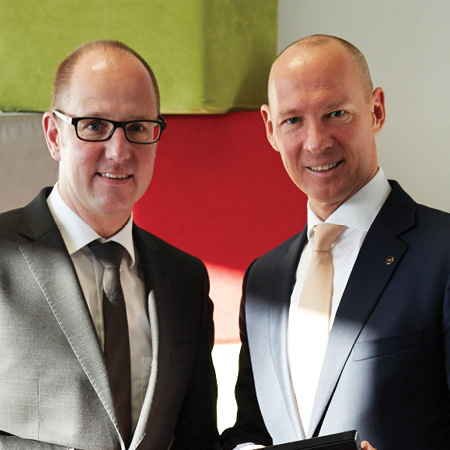Whether you’re boarding a plane with the delicious anticipation of flying to an exotic holiday destination or jetting around the world for business, you may not think about the IT systems that make the trip possible. But IT is like a complex web underpinning much of the airline industry and its activities. And that influence is only going to grow as IT solutions are employed to enhance the travel experience of passengers, and increase the average price passengers are willing to pay.
Olivier Krüger, co-CEO, Lufthansa Systems, puts it best when he says: “Many people think that IT is not really ‘sexy’ but if you transfer what Lufthansa Systems is doing in the airline industry then one realises that almost every process in the airline industry is supported through IT. If you think of a pilot in the cockpit flying the aircraft from London to Frankfurt, he flies with so many IT solutions provided by Lufthansa Systems. For example, he calculates the flight path through our solution. That is a very complex process that he would never be able to calculate and manage without the support of IT to the level of efficiency and safety standards that we require nowadays.”
Stefan Auerbach, co-CEO at Lufthansa Systems, sheds further light on the pivotal role of IT: “Airline margins are pretty thin across the industry so airlines are relying on IT to make the best use of their very expensive assets. For example, pilots used to carry a lot of paper with them, charts that they had to have handy in the cockpit. Nowadays they are able to see those charts on a tablet or a device that they carry with them.”
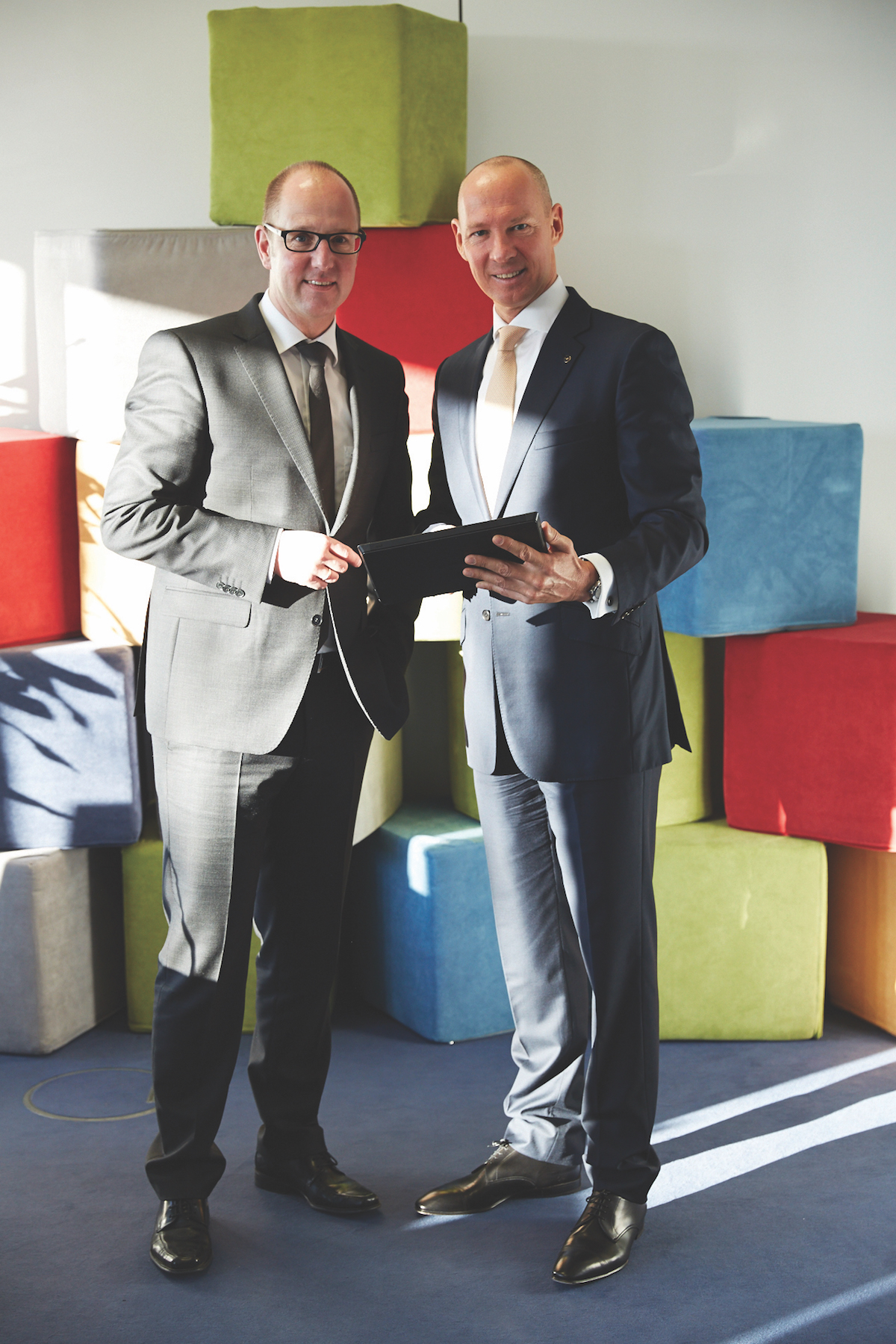
Leading the way in the development of IT solutions in the airline industry is a position that has provided the joint CEOs a great springboard.
This not only means pilots no longer have to carry big cases of paperwork, but they can also have instant updates. “If they are looking to land somewhere in Asia where there is a new high-rise building every month between the flight path and the landing area at the airport, it is important to be able to see that on their chart,” Stefan explains. That ability to use a device to update charts not only improves safety, it also reduces weight, which flows on to reduced fuel costs. Even the weight of the inflight entertainment system can make a difference. “With the traditional systems the in-seat screens are wired to a central entertainment system and on a long-haul aircraft this cabling weighs about a tonne,” says Olivier.
“So we developed a wireless inflight entertainment system, which is nice because it not only improves the airline customer experience but it allows the individual exchange of data — a boost into the world of digitalisation. It also reduces the maximum take-off weight and therefore reduces fuel burn.”
The wireless-based system led in turn to the development of the company’s BoardConnect Portable, an inflight entertainment solution that is suitable for low-cost carriers that may not be facing the issue of weighty legacy systems. In general, Lufthansa Systems provides its solutions to more than 300 airline customers, from large airlines to low-cost carriers. BoardConnect Portable allows passengers to use their own devices and the total system weighs less than two kilograms.
“It is the same solution within one small device, which is the size of a tablet, which you bring on board and this massively reduces complexity in certifications,” says Olivier. That’s a boon for any airline, he adds, explaining: “Whenever you bring something on board and you want to fix it to the aircraft you need to go through huge certification processes which costs a lot of money not only in terms of the certification itself but you have to ground the aircraft, and an aircraft that doesn’t fly costs a lot of money — every minute.” Leading the way in the development of IT solutions in the airline industry is a position that has provided the joint CEOs with a great springboard since they took up their roles in April, 2015. As they unfold their vision for the future of the company and the industry, their passion for what they do is almost palpable. Stefan joined Lufthansa Consulting in 1994, having studied business administration, business management and computer science at Cologne University. He worked in the banking industry for several years.
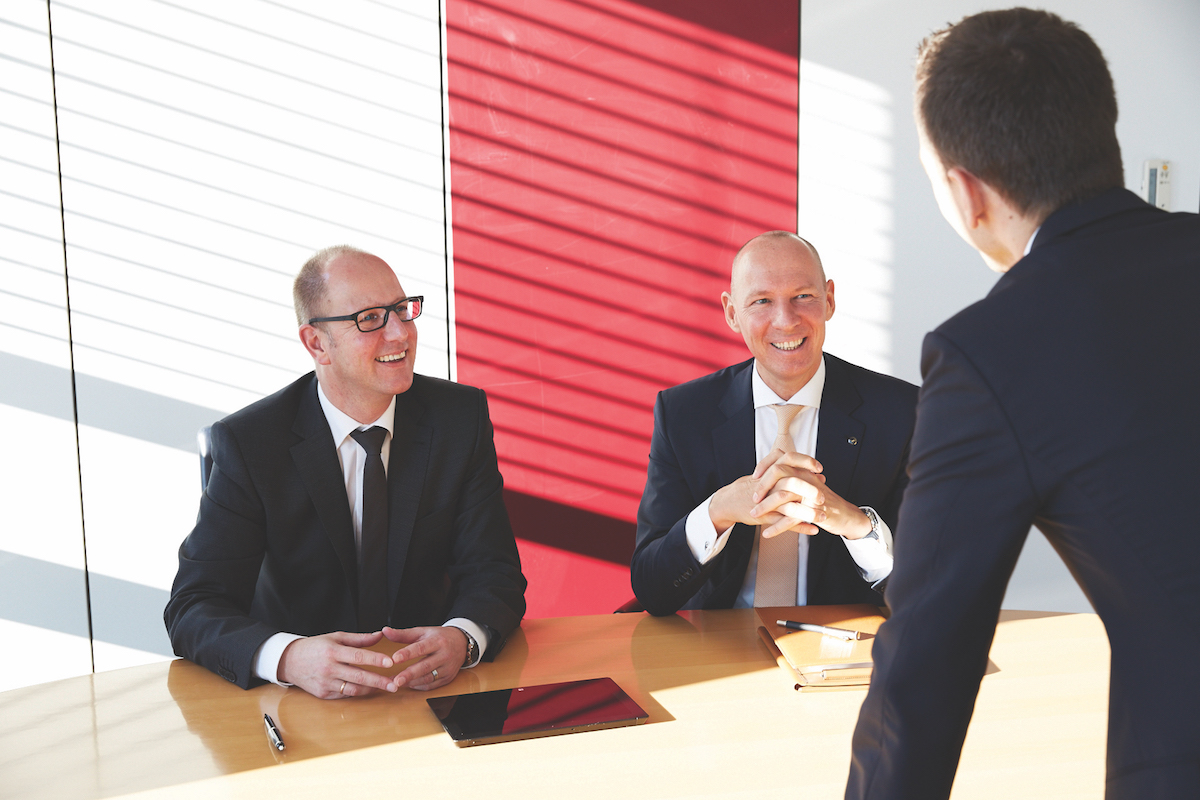
“I then decided I would only enter a bank as a customer because I was really infected somehow by aviation,” says Stefan.
The cure was joining the consulting company at Lufthansa. “I had a great time there, a lot of opportunities, international assignments and projects for airlines and airports. I gained a lot of insight and very valuable learnings in this capacity and in the year 2000 I was appointed head of the consulting company,” he says. In 2006 he accepted an offer to join Lufthansa Systems as its head of sales for Europe, Middle East and Africa.
“I did it because I was always interested in the optimisation stuff that the company was providing to airlines at that time and I could bank on the network I had built in the previous decade.” He became a member of the executive board as the senior vice president and in 2010 took over responsibility for the airline solutions division within Lufthansa Systems.
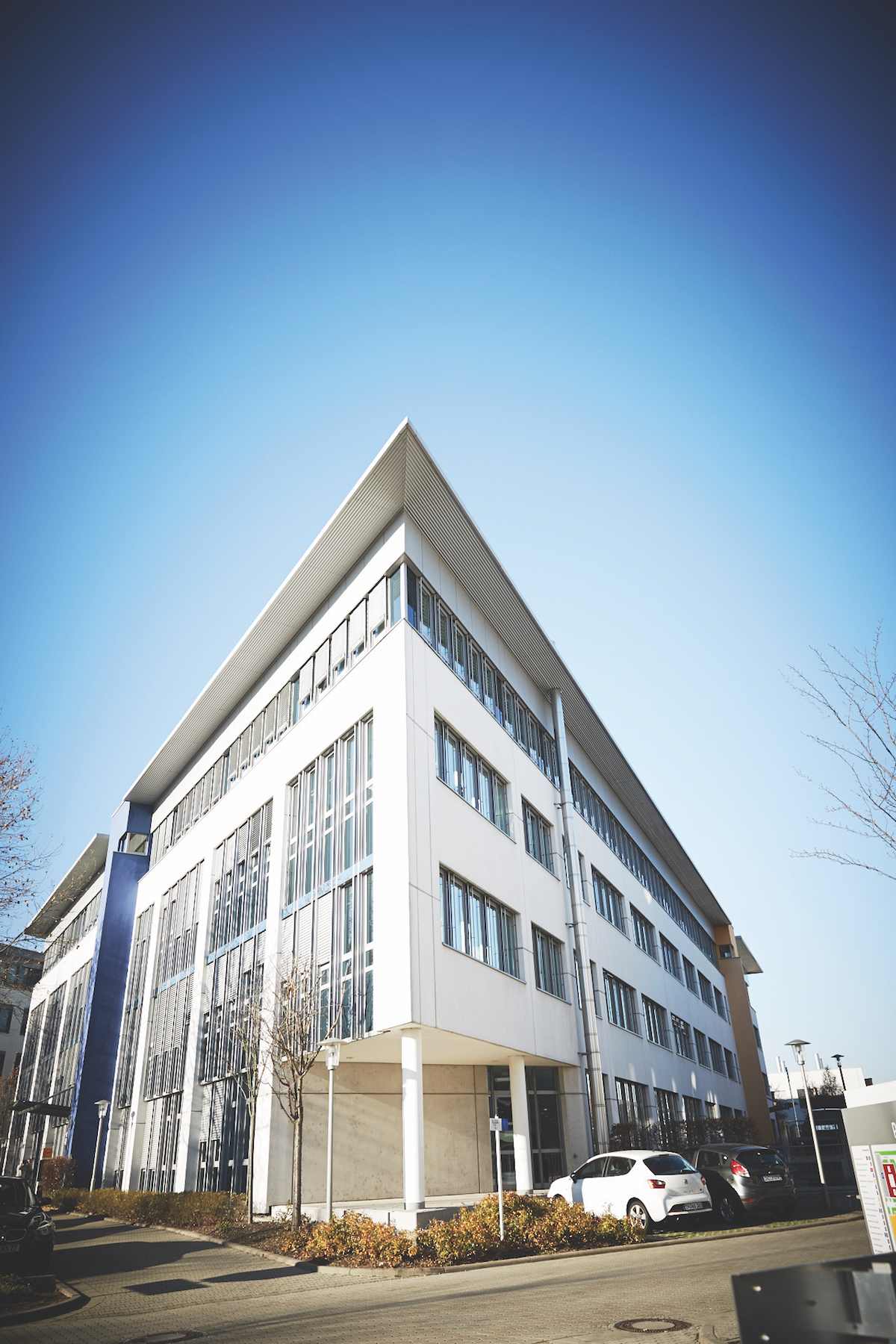
Olivier, on the other hand, travelled quite a different route to his co-CEO role. He first studied law in Regensburg and later changed to International Relations in Dresden where he worked at the Institute of International Law and the Institute of International Relations. He then completed a Master’s of Political Science and Sociology in Strasbourg, France, before he made a brazen attempt to enter the airline industry by writing a letter to the Lufthansa Board.
While he didn’t secure his desired role — negotiating the flying and landing rights for the airline — he was hired as an account manager for Lufthansa Systems in 2001. “I then moved to the Americas and was responsible for sales for North and Latin America and took over other fields of responsibility like finance and HR. But very quickly we found that I was even more passionate about Asia so I continued in Hong Kong and led the Sales department for Lufthansa Systems.”
After a three-year stint there he moved to Singapore to take responsibility for Lufthansa Systems Asia–Pacific as CEO and in 2011 he joined the Lufthansa Systems Board in Germany. While the joint CEO structure is somewhat unusual, its strength lies in a shared passion for the company, the people within it, and the industry, as well their complementary skillsets.
“There’s a lot of things that we have in common but there’s also a lot of different skills we bring to the table and we are willing, even hungry, to learn from each other,” says Olivier. “There’s a lot of focus on how to make things better by making good things together, shaping things together, to communicate the vision. This is the spirit that we try and bring to the entire company. We want everyone to not only understand the airline industry and the properties and the technology, but we want everyone in the company to act as an entrepreneur — to know where we are at, who our partners are, why we work with those partners. We make these things very transparent so we can bring out the best in our people.”
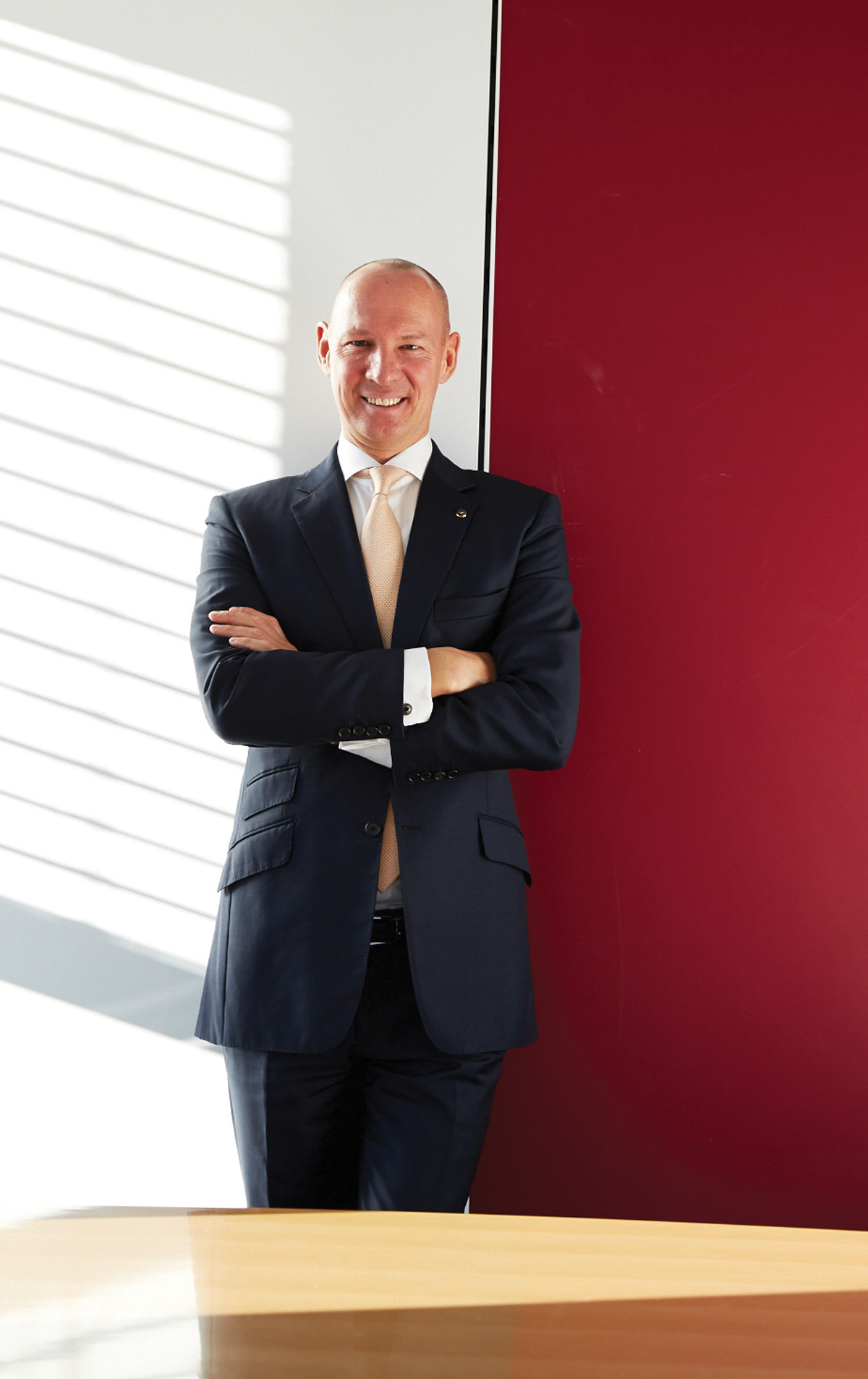
“There’s a lot of things we have in common but there’s also a lot of different skills that we bring to the table.” – Olivier Krüger
When Olivier and Stefan became joint CEOs at Lufthansa Systems on April 1, 2015 they saw an exciting challenge ahead. “Something that we both have on our agenda is to transform Lufthansa Systems into a very agile company,” says Stefan. “In most of our products we have a leading, if not the leading, position in the market in airline IT so that is a very strong financial basis for expansion.”
However, it is using mobile technology, data analytics and cloud technologies in the B2B to consumer market where they really see the future growth opportunities for Lufthansa Systems. “This is a huge market which will quickly become bigger than the traditional airline IT market,” Stefan says. For example, he says, take the passenger stranded at an airport because of snow: “It would be great if you can take a bus or a train instead of a plane with everything organised by an airline staff member via their tablet. That’s only one example of how new technologies can provide additional value for passengers and improve the travel experience.”
Another area where the CEOs see opportunity is in dynamic distribution management. “All airlines are using dynamic distribution management methods to increase the average price that they get from their passengers but in the future we can make a lot more use of data and passenger profiling,” says Stefan. That will allow airlines to know a passenger’s exact travel preferences. “If that passenger wants to travel from Stockholm to Rome at a certain time, the airlines can then make a very individualised price offer to him or her.”
Those instruments will give Lufthansa Systems’ airline customers the ability to manage their prices and distribution process in a “very dynamic and different way from the past,” says Stefan. The CEOs recognise they will need the help of partners to achieve their aims. “Technology is changing rapidly and it is clear that we cannot invest in or invent everything. In many cases innovation comes from making use of the technologies that are already available in a different context,” says Stefan. That’s where partnerships with the likes of Nagarro, Microsoft and IBM as well as small start-ups with strengths in specific areas are key to the organisation realising its strategic vision.
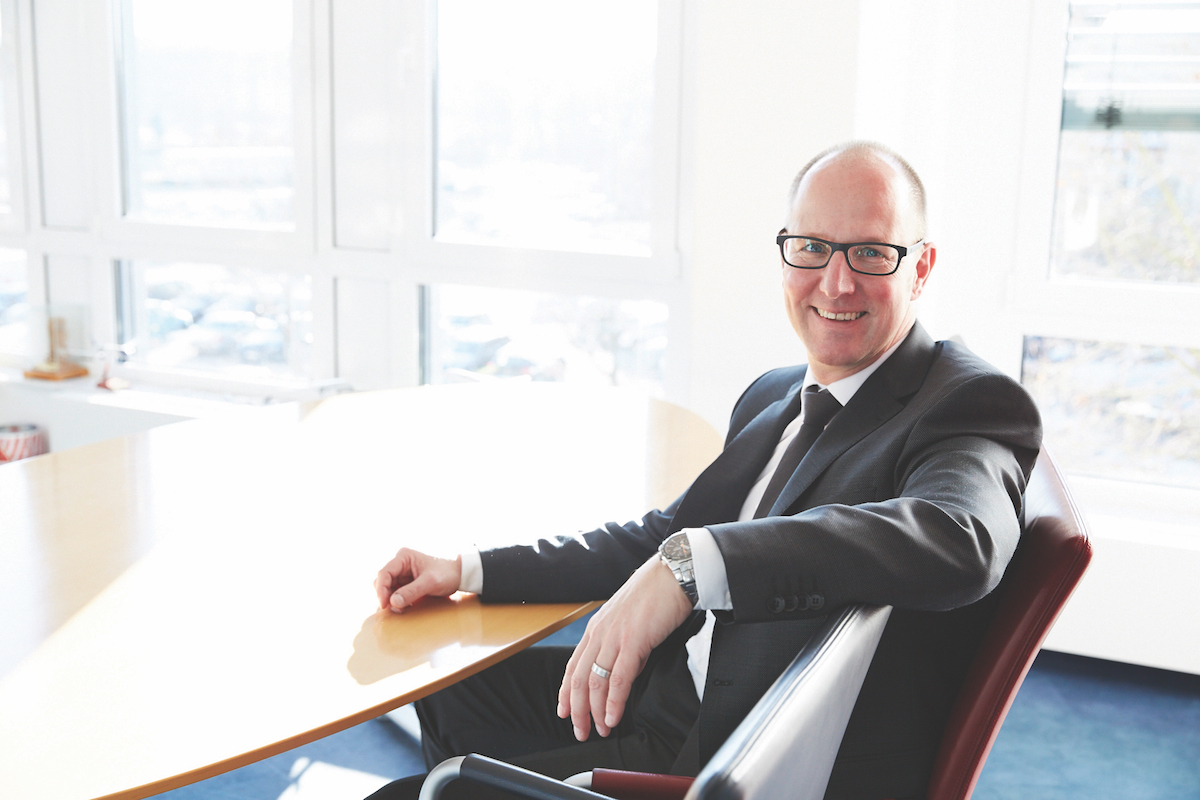
Their vision of the future also has implications for the company internally. It has created a data analytics company, ZeroG, to harness the “tonnes” of data being generated by the airline industry. Stefan describes it as “the most diverse company within the Lufthansa Group right now”. “The company looks completely different to any other Lufthansa company and we also have people who are not interested in lifetime employment but are more interested in very challenging, interesting problems that are solved by analytical methodology. They are utilised right from the very beginning in various areas to explore passenger preferences and travel patterns and to draw inferences from that for efficient planning.”
Bringing out the very best in its 2,100 employees includes taking a crowdfunding-style approach to innovation. “We have 2,100 experts with a lot of ideas and we really need to explore those ideas,” says Olivier. “We very much believe in the wisdom of the crowd and not only in the wisdom of two co-CEOs.”
To tap the wisdom of the company’s ‘crowd’ it has created a platform where any employee can put forward a business idea. Each employee is given artificial currency that they can use like a venture capitalist to fund the idea. “If the idea reaches a base funding we allow them to build a prototype,” Olivier explains. The platform is already proving its worth, with two-thirds of the employees actively participating since it was introduced in 2015.
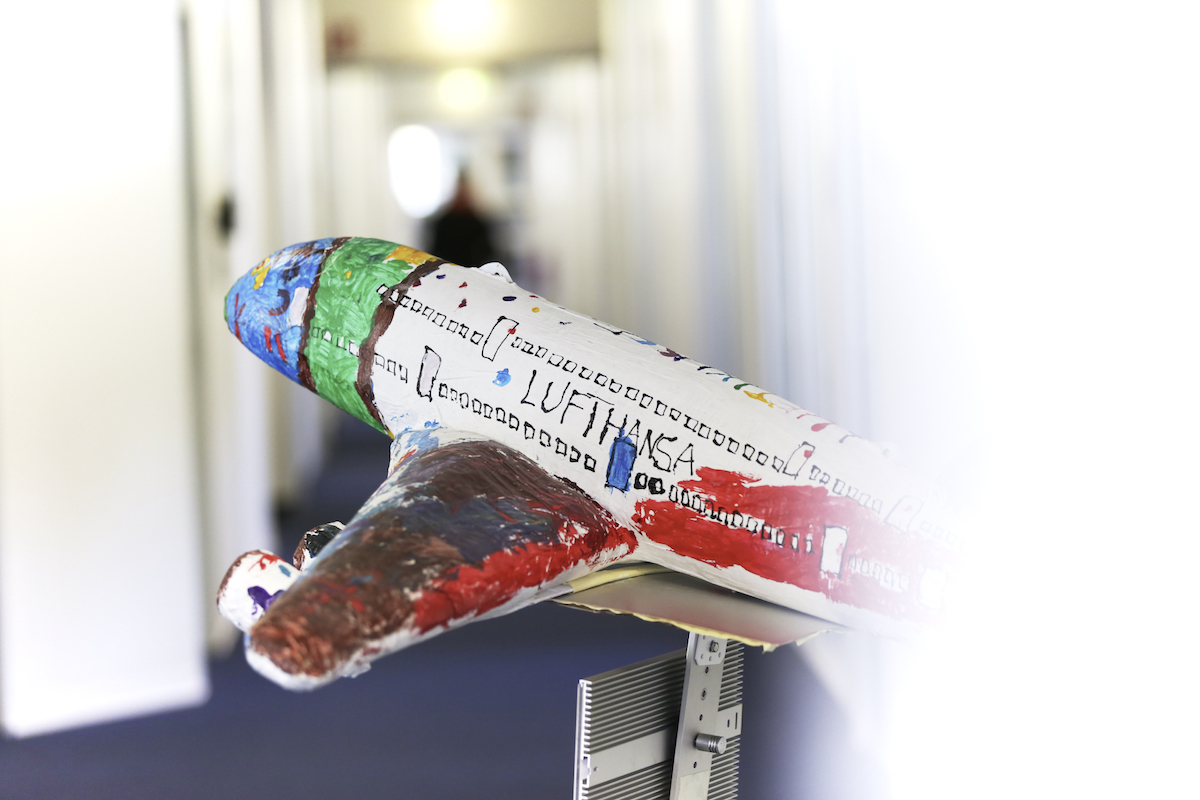
It is also looking at how it can further break down the industry’s traditional ‘silo-based’ approach where flight path optimisation is handled by one department and crew management optimisation by another. “In the past, all of these business units have not spoken too much to each other,” says Olivier. So once the two CEOs commenced at the company, it made a lot of internal changes within Lufthansa Systems in anticipation of how the airline industry will work in the future.
“All this can change if you have technology that allows you to increase communication and the efficiency of combining that information in order to create new business cases or optimise things even more,” he says.
Another change designed to enhance the company’s internal workings will occur this year when the company moves into its new headquarters.
“The concept of the new headquarters, particularly the way we design the offices, will reflect this spirit,” says Olivier. “When you put that in the context that we are working as an IT company in the airline industry which is very hierarchical and policy-based, this is quite an innovative approach and we think it will make a big difference within the industry.”

